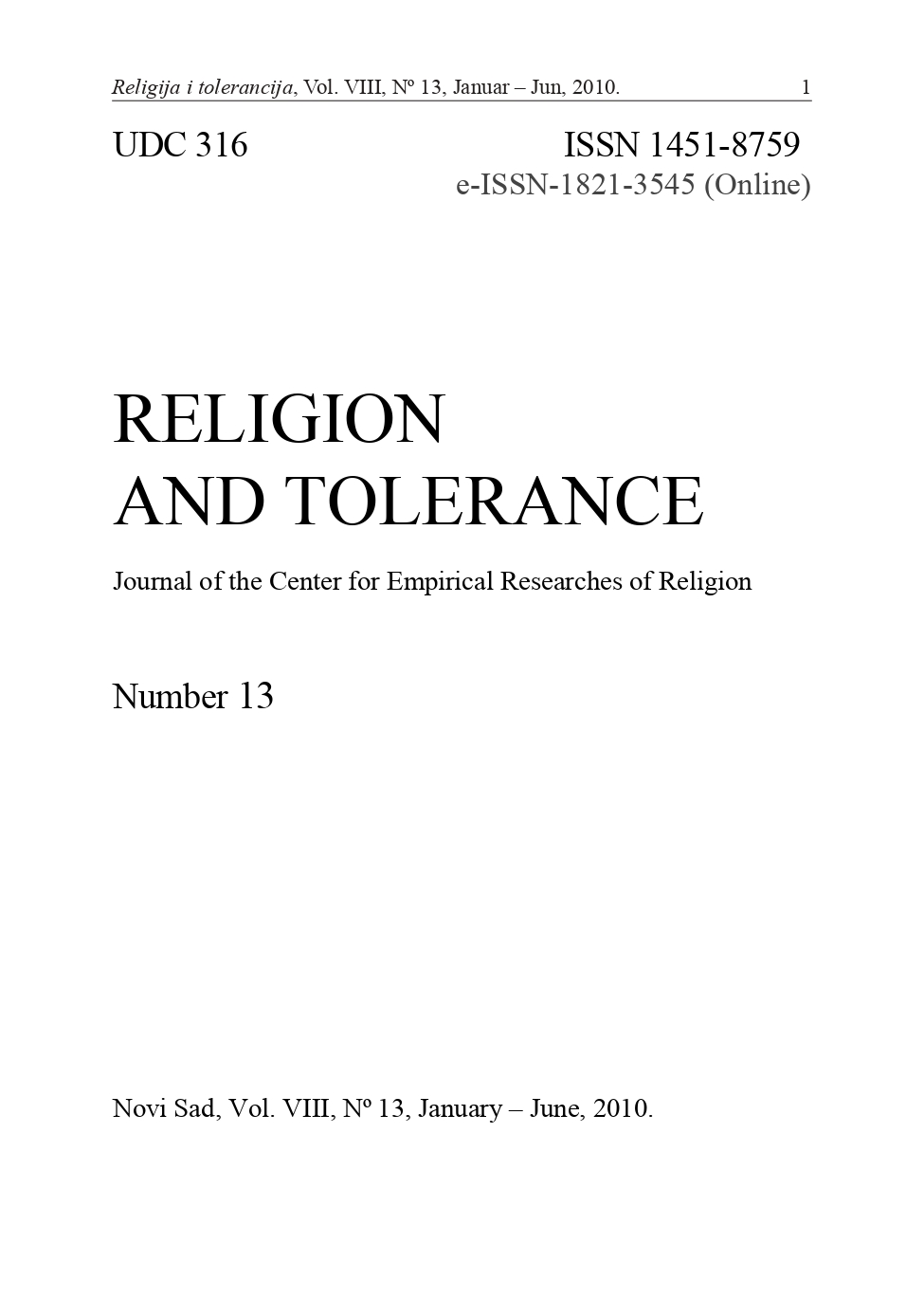BOG I PRAVDA U FRAGMENTIMA BARDA IZ KOLOFONA
THE GOD AND JUSTICE IN FRAGMENTS OF THE POET FROM COLOPHON
Author(s): Željko KaluđerovićSubject(s): Theology and Religion, History of Religion
Published by: Centar za empirijska istraživanja religije (CEIR)
Keywords: Xenophanes; God; monism; justice; measure; geometric equality
Summary/Abstract: The author in this paper at first analyses the Xenophanes understanding of the god, i.e. his questioning of the inherited polytheism by statements about one god above all gods and people. By such a thesis Xenophanes indirectly announces that the acutal divine authority lies at the other side of common conceptions about gods. In Xenophanes fragments the god is understood not only without any kind of affectuation, so characteristic for any serious religiousness. On the contrary, these fragments reject any implications that gods might have human properties, appearance and feelings. Subsequently, the paper analysis Xenophanes understanding of justice which was, according to the author, less "revolutionary" than his opposition to the anthropological representation of gods. The poet from Colophon, namely, in his first fragment, presents his respect for the tradition and that he respects the measure as a means of forming the practical virtues of justice in humans. In the second fragment, Xenophanes inherits the old aristocratic understanding of justice, which implies that honor and other virtues are distributed in proportion to the merits for the community. Since he, like other poets, believed that his contribution to the well being of the polis is immesurably greater than contribution of an athlete, Xenophanes believed that he adequately deserved more of everything, particularly honor. In this way, eventually, according to Xenophanes, in addition to the knowledge that would enable "the good excersise of the law", interests of the whole, i.e. polis would be protected in the best possible way.
Journal: Religija i tolerancija
- Issue Year: 8/2010
- Issue No: 13
- Page Range: 51-65
- Page Count: 15
- Language: Serbian

